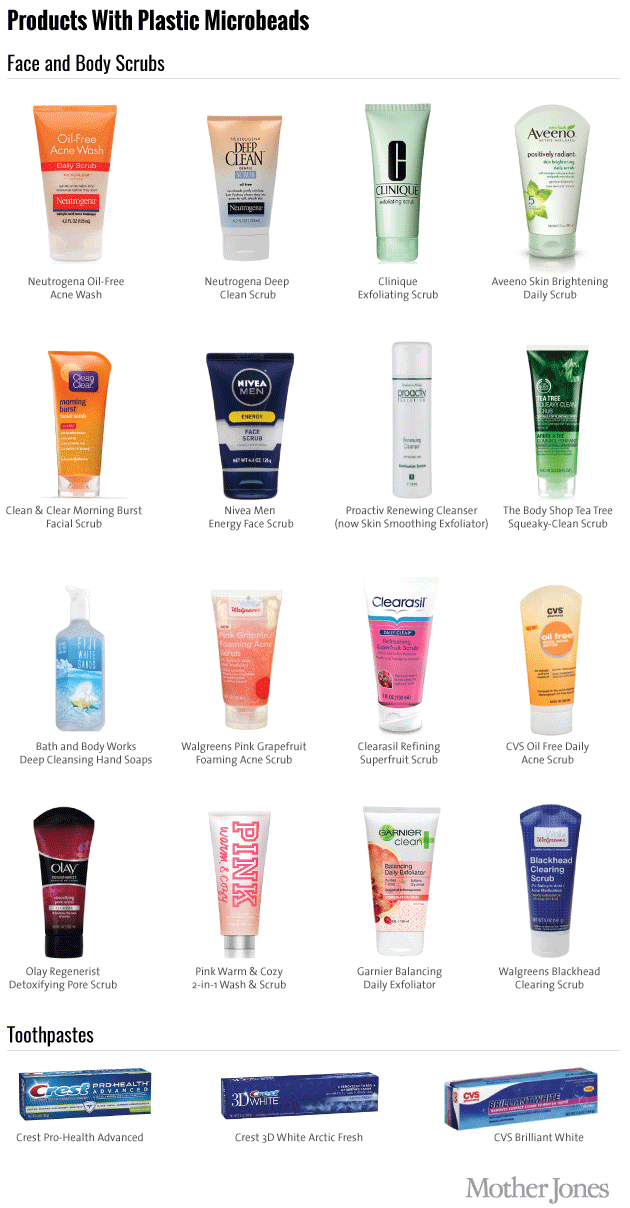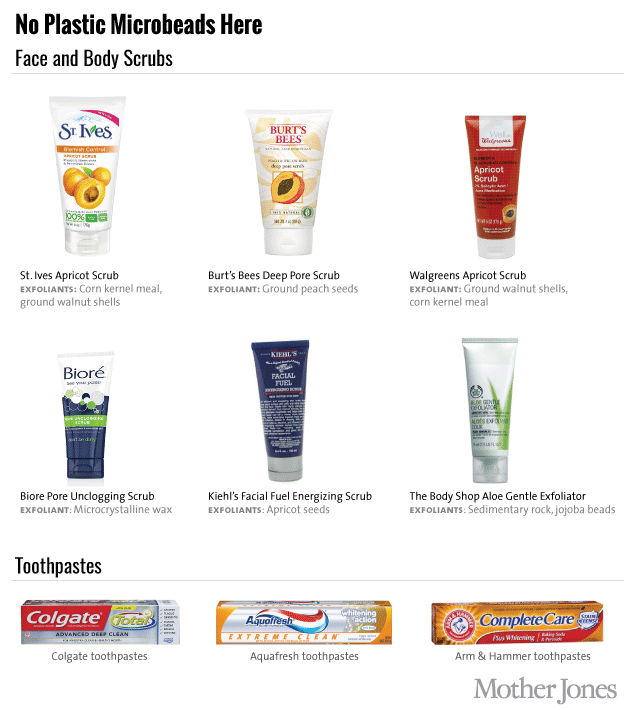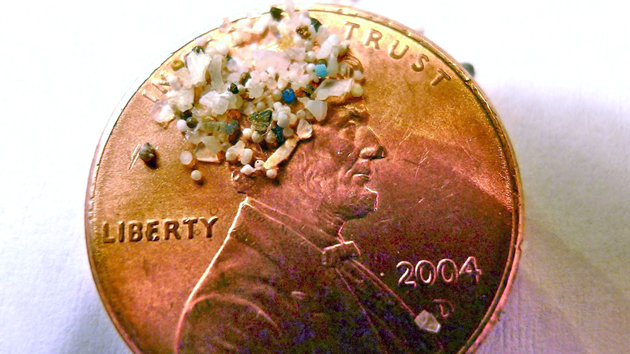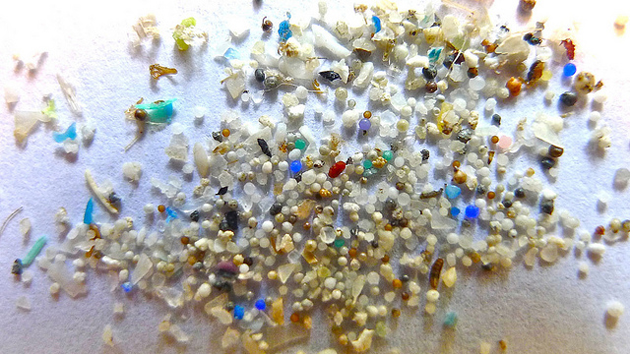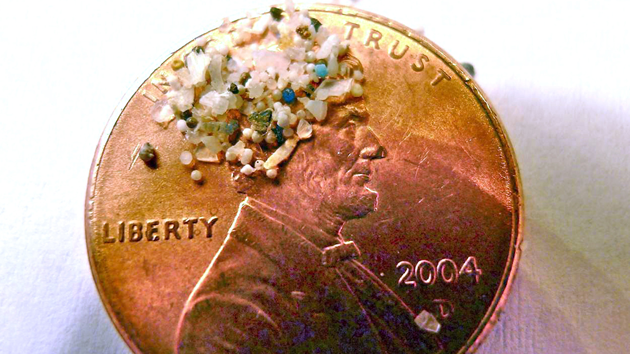
A sample of microbeads collected in Lake Erie5 Gyres Institute
Yesterday, the US House of Representatives voted to phase out microbeads, the little pieces of plastic that act as exfoliants in personal-care products ranging from face wash to toothpaste. The bill, which was introduced last year by Rep. Frank Pallone (D-N.J.), would ban the use of synthetic microplastics in cosmetics by 2018. Sens. Debbie Stabenow (D-Mich.) and Gary Peters (D-Mich.) introduced companion legislation in May.
Environmental advocates have expressed concern for years over the beads, which are so small that they aren’t caught in water treatment plants. There are roughly 300,000 microbeads in a single tube of face wash; by some estimates, Americans dump roughly 300 tons of the beads per year into US waterways. The microplastics, which serve as a sponge for toxins, are frequently confused by fish as food and make their way up the food chain—they’ve turned up in tuna and swordfish.
Several states have enacted microbead bans, starting with Illinois in 2014. California passed the strictest legislation yet in October this year, banning both synthetic and biodegradable plastics. (Many experts argue that there is no such thing as plastic that can biodegrade in ocean conditions.) If it becomes law, the national legislation, which only focuses on synthetic plastics, would supersede these state bans.
Here are a few products with and without the plastic beads. If you’re curious about a product you use, look for polyethylene on the ingredient list.
